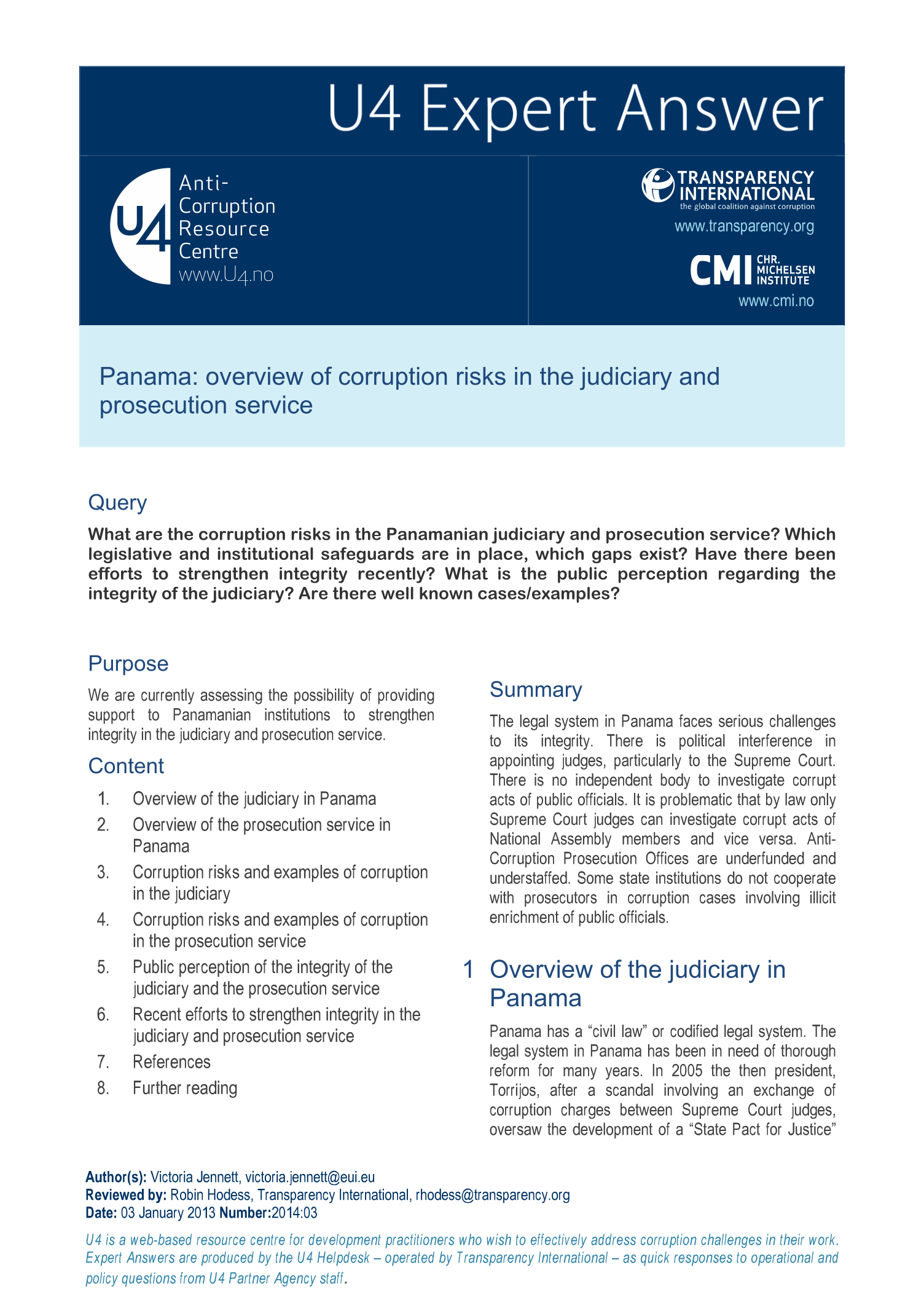U4 Helpdesk Answer
Panama: overview of corruption risks in the judiciary and prosecution service
The legal system in Panama faces serious challenges to its integrity. There is political interference in appointing judges, particularly to the Supreme Court. There is no independent body to investigate corrupt acts of public officials. It is problematic that by law only Supreme Court judges can investigate corrupt acts of National Assembly members and vice versa. Anti-Corruption Prosecution Offices are underfunded and understaffed. Some state institutions do not cooperate with prosecutors in corruption cases involving illicit enrichment of public officials.

Cite this publication
Jennett, V. (2014) Panama: overview of corruption risks in the judiciary and prosecution service. Expert Answer 2014:03
Disclaimer
All views in this text are the author(s)’, and may differ from the U4 partner agencies’ policies.
This work is licenced under a Creative Commons Attribution-NonCommercial-NoDerivatives 4.0 International licence (CC BY-NC-ND 4.0)


